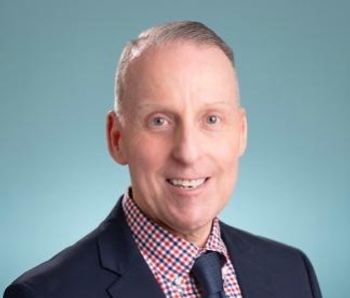
Inspira Health CEO talks about delivering care in rural New Jersey
Amy Mansue, head of Inspira, discusses dealing with poverty, seeing sicker patients, and why Medicaid cuts will make it harder to care for communities.
For those who only know New Jersey from the Turnpike, it may be surprising to learn that the densely packed state has rural communities.
But southern New Jersey is home to many rural communities, even though they are an hour or less from Philadelphia. Amy Mansue, president and CEO of Inspira Health, says delivering care to those communities brings many challenges.
It’s complicated by the fact that Inspira doesn’t meet some of the federal definitions of a rural health provider.
“It makes it very challenging to try and address the needs of our rural community when we're not eligible for any of the services that are provided at a federal level, because we don't fit those definitions,” Mansue says.
Inspira operates four hospitals, including a medical center in Vineland, its newest hospital in Harrison Township, Gloucester County, and two small hospitals in Salem County, along with a host of clinics and outpatient facilities.
The system doesn’t qualify for some assistance to rural providers because, even though its service area includes rural communities, there are other healthcare facilities that aren’t too far away geographically.
About half of Inspira’s patients are on Medicare and Medicaid. Many residents have lower incomes. Staffing is a challenge, particularly for Inspira’s small hospitals.
The looming changes in Medicaid will pose more challenges for those communities, she says.
In an interview with Chief Healthcare Executive®, Mansue talks about providing care in rural communities that are struggling, finding solutions to expanding services, and why serving a rural area is so meaningful.
“This delivery of care is very different, because you are literally caring for your friends, your family and your neighbors,” Mansue says.
“It’s personal.”
(See part of our conversation in this video. The story continues below.)
Staying independent
Even as a smaller system, Inspira is not looking to merge with another large health system in New Jersey.
“I'm almost 40 years in this business now, and I've seen a lot of mergers fail, and a lot of time wasted on it,” Mansue says.
Inspira’s board sees maintaining independence as essential to protecting health services in its rural communities.
“Our board of trustees feels very strongly that when you have the obligation of having the two counties in the state of New Jersey with the worst health outcomes, and who are the poorest communities, that putting them into a larger system could really hurt their voices being heard,” Mansue says.
To maintain independence and provide better care, Inspira has engaged in strategic partnerships.
Inspira has partnered with Cooper University Health Care in New Jersey to expand services for patients. Cooper has provided cardiac services for a decade. Cooper has embedded physicians at Inspira’s two larger hospitals, and also provides services in the system’s intensive care units.
The health system is in the process of finding a partner to expand cancer services.
Inspira has teamed up with Horizon Blue Cross Blue Shield to hire community health workers to help people get access to care.
Inspira has also worked with local prosecutor’s offices and police departments to embed social workers to help people with behavioral health challenges.
“If they identify individuals who are in crisis, they don't need to go to jail,” Mansue says. “We can get them into services.”
Inspira also pressed to get federal money for violence prevention programs. The service area has problems with gang violence.
“We literally have folks who are going into the most challenging areas at two in the morning, trying to de-escalate gang violence and some of those other things,” she says.
Staffing challenges
Inspira has struggled to fill positions in its hospitals, especially its two smaller hospitals in Salem County.
One in five high school students drop out in the Vineland area. Inspira has dropped its requirement for a high school diploma for some entry-level jobs.
The health system has teamed with community colleges in the area. Between discounts on tuition and financial support from Inspira, employees can take courses at the community colleges at no cost. Since launching the program three years ago, 800 people have gone through the program.
“We're looking to make sure that our community is as strong as it can be to be able to continue to provide jobs,” she says. “Because at the end of the day, that's what matters. People need employment to be able to have health care, to be able to feed their families.”
Part of the reason for the gang presence, even in a highly rural area, is some people who can’t find work or see better options. That’s why Inspira is working to “create that economic engine,” Mansue says.
Medicaid impact
The federal tax package is projected to result in
Some healthcare leaders say they expect more Americans without any insurance
Mansue says she’s worried about that scenario.
“What I'm most concerned about is we already have really, really, really busy emergency departments, just like everybody else in the country, with those folks who had Medicaid,” Mansue says. “And we have a large migrant population here who are no longer going to have access to Medicaid. They're going to come to our EDs for care, because they're not going to have any place else to go.”
Even with more people turning to urgent care, Mansue says her hospitals continue to see more patients. She expects that demand to rise in the coming years with some people losing Medicaid coverage.
“We've got more people who are sicker than we ever, ever imagined,” Mansue says. “You know, those sort of easy cases in the emergency room, they don't come anymore. People are coming in really sick with complex care, and they don't have the support at home to be able to be discharged.”
Inspira is going to work with counties to make sure people are enrolled in Medicaid, and to be sure participants understand new requirements for healthy adults to work to stay covered. Inspira is also reaching out to Federally Qualified Health Centers to reach out to patients.
Inspira is also going to be working with health centers and other community partners to meet the growing demand for services.
“At the end of the day, these people are going to need care, and we're going to have to figure that out,” she says. “But you can't do it alone.”
Still, Mansue remains optimistic about the ability to find solutions to serving Inspira’s communities.
With its partnership with Cooper, Inspira is able to provide more services. The system’s efforts to expand behavioral health services and engage in violence prevention programs also underscore Inspira’s commitment to help the region, she says.
“We're saving one person at a time,” Mansue says. “But you’ve got to start somewhere. And that's one of the benefits of being in some of these smaller areas is, the problems, while they're certainly significant, you feel like you can tackle them.”
































